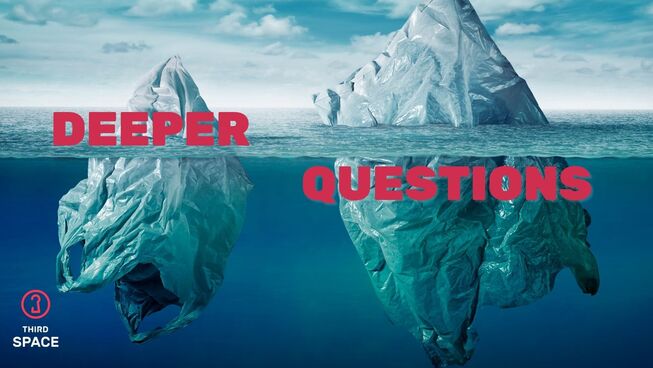Cutting down the tall poppy

In Ancient Greece an “Ostracism” was an annual event where citizens wrote the name of the person they wanted removed from their city on an “ostracon” ( a double-sided coin). Anyone considered a “threat” to democracy or just someone else’s power could be voted out of the city. White’s critical commentary Paul, Community and Discipline says,
Expulsion was thus an effective way of eliminating the influence and position of rival aristocrats in the community (White, 2021)
Ostracism was seen as a way to remove powerful leaders that was more humane than execution. Later, the “ostracisms” evolved into a legal practise, exile. After the vote was cast, the exile left, with, or without their wealth, depending on the rules of the region.
The evolution of Exile
In ancient Rome, exile as a punishment was more subtle. In contrast to Greece’s clearly defined elected exile and expulsion, it seemed to be something that could be negotiated. In 509 BCE, Lucius Tarquinius Collatinus disputed his exile which enraged the people who had voted him out. He was eventually persuaded to leave voluntarily by his father-in-law (White, 2021). This shows ostracism begin to evolve into a way of “saving face” rather than direct punishment.
The Romans valued concordia or harmony, above truth. It did not matter who was wrong or right, what mattered was national harmony. Conflict, even over matters of truth, was discouraged if it threatened concordia.
Australia’s vague ostracism
Australian society is a web of subtle social indicators that may be misread, misunderstood and misinterpreted. The ways we ostracise are not only informal, they are unspoken and even denied. We gaslight, feign innocence or ignorance, or even tell ourselves we aren’t doing it at all. Perhaps in our own way, Australians prefer concordia, or at least the external appearance of it, to admitting that our views have been threatened.
Sometimes our Ostracism externalises our own anxiety about politics, work and relationships without recognising the cost to the individuals we isolate. Sometimes we overtly cut down the tall poppy but sometimes we secretly throw some shade or weed killer at them.
Social pressure is a powerful tool with big consequences
As a tool to expel a criminal or oppressive leader, ostracism is a highly effective use of community pressure.
When we use this tool, we need to examine ourselves as to whether we are genuinely threatened by someone or just feel that we are. When the rules are unspoken, there is that much risk that we kill the bloom of someone who is faster, younger, more talented or just better than us. We can destroy someone socially in a lasting way merely because we are frightened or feel insignificant.
Ostracism in small regional Communities
In my doctoral leadership research, I interviewed leaders in regional Victoria whose business or voluntary work was good for their town. I talked to locals, read local papers and kept a field diary of anything interesting. I expected ostracism, as smaller communities tend to exclude people who they don’t know or trust, but what I learned was that ostracism ranges from subtle to obvious.
Even when writing up my research a year later, I recognised an act of ostracism that I hadn’t seen at first. To this day, I wonder if the participant even knows it happened. A group he trusted “helped” him after his business failed, but picked up his clients and workforce as well.
The act was so subtle I almost missed it.
One participant was slandered in the street and rumours spread so far and wide that her children reported them to her when they came home from school. This ostracism was pretty hard to miss, but only if you spoke directly with the person, because there is no doubt the slander was so strong it convinced many to discard the leader from their social circles.
How should we use social pressure to change people’s behaviour?
White’s book lays out the ancient Greco-Roman backstory and its shaping power on Judeo-Christian processes to resolve conflict and mitigate power. But in the Bible, the Apostle Paul went further than social customs of the time. Rather than exile by democratic vote, Paul used morality based on kindness and truth as the measure of whether someone should be asked to leave a community.
The perception of wrongdoing by a majority was not enough, it had to be established by witnesses and be based on Judeo-Christian morality, not opinion. It was also a method of discipline and not just exile, the person could come back at any time if they repented, admitted wrong and agreed to live by the social contract based on biblical morality. Restoration was implicit in the process.
Is ostracism just “cancel culture”?
When we feel the desire to “cancel” someone, we must reflect on whether someone has rankled us personally, or if they have truly caused us harm. The early church had clear protocols for challenging someone who was harming others and resolving the conflict. If we haven’t been truly harmed but are just threatened by another person’s talent, difference or approach, it’s time to put the ostracon away, and learn to deal with our own feelings of inadequacy instead.
In a time when our anxiety might compels us to hypervigilance, let us reflect before cutting down the tall poppy. If we’re being like the ancient Romans, who idolised concordia over truly resolving enmity, we might be missing a chance for true harmony and change in a world that desperately needs it.
References:
White, A. (2021). Paul, Community, and Discipline: Establising Boundaries and Dealing with the Disorderly. (Fordham University, Ed.). Lexington Books, Lanham.






